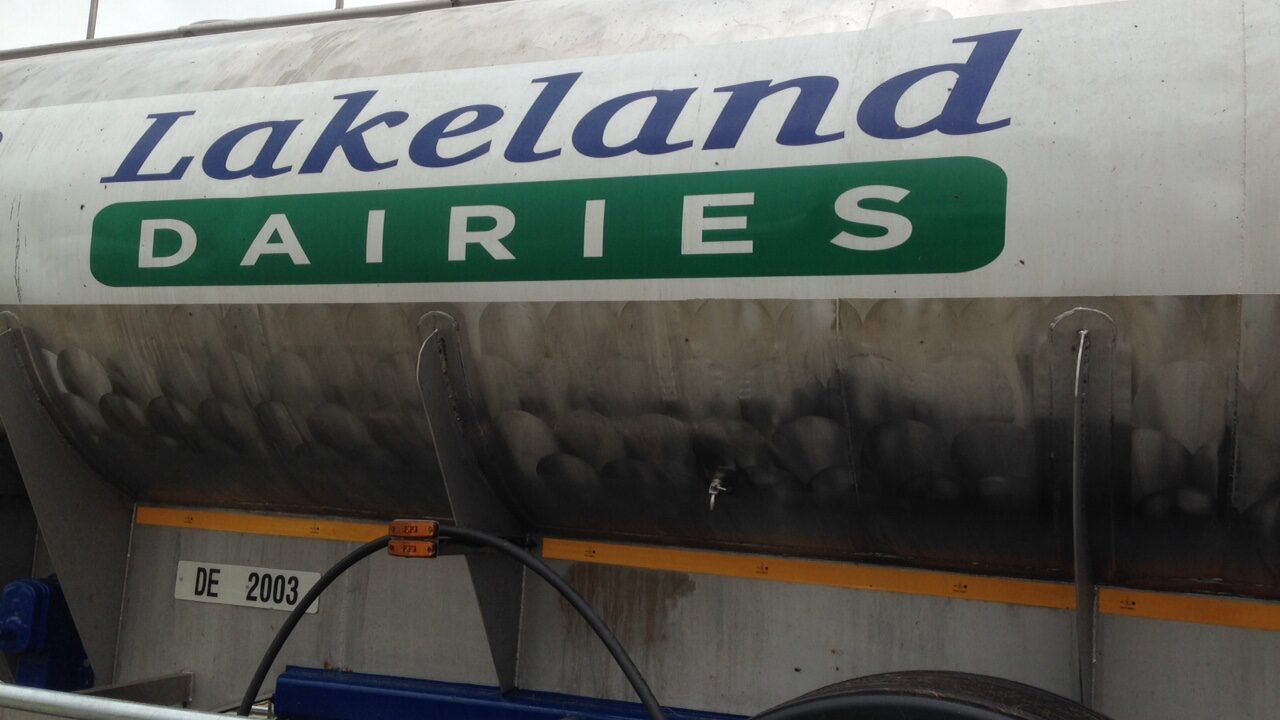Lakeland Dairies has held its base milk price for February supplies of milk at 25.5c/L (including VAT), a spokesperson has confirmed.
Lakeland will also pay a 0.28c/L lactose bonus, which adds up to 25.78c/L, again including VAT.
It is the first co-op to set a milk price for supplies for the month.
Last month, Lakeland Dairies cut its January milk price for base supplies from 26.25c/L to 25.5c/L.
Lakeland Dairies had held its milk price for December supplies of milk.
The rest of the co-ops are expected to announce their milk prices for February milk next week.
Last month, Glanbia, Kerry Group and Dairygold all held their milk prices.
Lakeland’s decision to hold its price for February comes as latest data from the EU Milk Market Observatory (MMO) showed Irish milk prices fell more in Ireland than any other EU country in January when compared to the same month last year.
Its data shows that EU milk prices fell on average by 2.8% in January as dairy markets continue spiral downwards in the face of increased production and sluggish demand for dairy products globally.
Irish milk prices showed the greatest decline over the period. The MMO data says Irish prices fell by 12% to 29.28c/kg from 33.50c/L in January 2015.
Other countries that have seen significant falls include the Czech Republic, Slovakia, Portugal, and Bulgaria.
Earlier this year, Lakeland Dairies CEO Michael Hanley said that once global stocks begin to clear, a gradual improvement in dairy market conditions is expected in 2016.
Lakeland Dairies has continued to put in the groundwork required to ensure long term sustainability and continuing growth and development in an increasingly globalised and often volatile dairy marketplace.
This includes investments in new milk processing capacity, larger scale and an efficiency and cost reduction programme across all operations.
The Lakeland Dairies CEO said that dairy markets have been challenging due to several factors coming into play at the same time.
“This has included the abolition of the EU quota system and increased production by European farmers, the Russian ban on EU dairy products and a global oversupply from dairy producing countries.”

